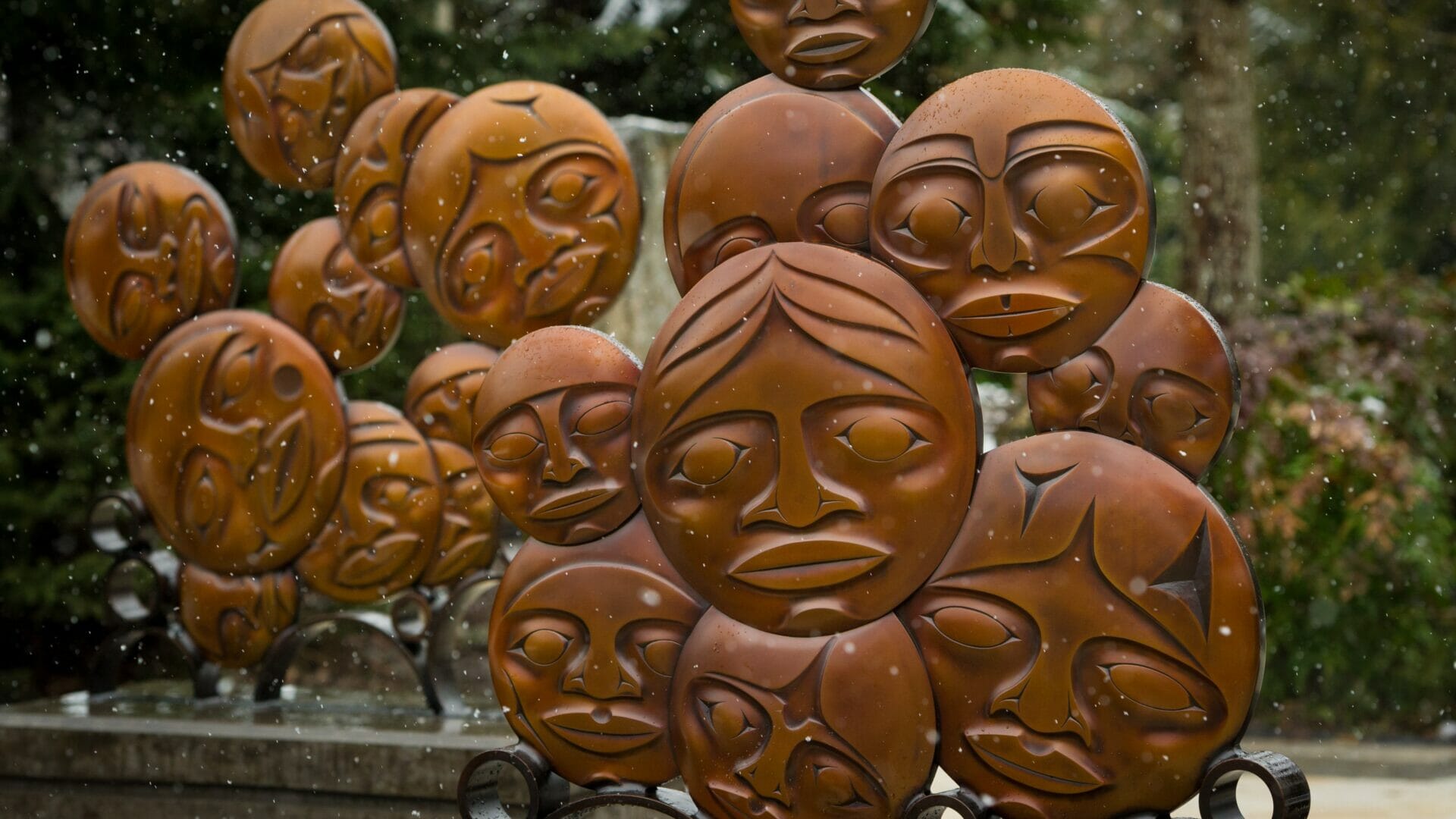
Whistler’s Cultural Plan is a road map to guide the development of the Arts, Nature and Heritage sector in Whistler.
The focus of Whistler’s Cultural Plan is the development of Whistler’s Arts, Nature and Heritage sector, and to build the sector’s capacity within the resort community to create experiences that are unique to Whistler to the benefit of residents and visitors.
Whistler’s Cultural Plan is intended to inspire action and leadership. Ultimately it will be Whistler’s artists, curators, musicians, biologists, artisans, geologists, writers, actors, historians, directors, filmmakers and other cultural producers who create Whistler’s cultural landscape, products and programs.
Recommendations
Whistler’s Cultural Plan identifies four goals:
- Ensure Whistler residents understand and appreciate the Arts, Nature and Heritage sector.
- Instill in Whistler residents a strong sense of identity, pride and belonging through participation in the Arts, Nature and Heritage sector.
- Boost Whistler’s recognition for policies and programs that encourage economic prosperity through cultural initiatives.
- Make Whistler a vibrant cultural destination for visitors.
To achieve these goals, Whistler’s Cultural Plan outlines three Strategic Priorities and 12 Strategies.
Timeline
Whistler’s Cultural Plan is an evolution of work that dates back to March 2011.
2011 March
- Whistler’s Cultural Tourism Development Strategy was presented to Council.
- The three major recommendations were for product development, develop a Community Cultural Plan, and hire a Cultural Coordinator.
- There were 18 product development recommendations, including Whistler Olympic Plaza programming vision, review Village Animation through a cultural tourism lens, heritage interpretation plan.
- The Cultural Tourism Advisory Group became the Alliance for Cultural Tourism.
2013 September
- Whistler Community Cultural Plan was presented to Council.
- It included 31 recommendations. Of these, 14 were arts-specific, four were heritage-specific, and 13 were general in nature.
2017 January
- RMOW established the department of Cultural Planning & Development to lead the process of advancing Whistler’s cultural initiative, work with stakeholders to build capacity in the arts, heritage, and natural history sectors within the resort community, lead the Festivals, Events & Animation strategic planning process, and lead the Learning & Education initiative.
2017 September to December.
- The Whistler Community Cultural Plan executive summary was updated and merged with the Cultural Tourism Development Strategy’s recommendations.
- The update and merger was prepared by the Alliance for Cultural Tourism sub-committee, with input from all 20 participants of the alliance.
2018 June
- Updated and merged the Whistler Community Cultural Pan and Cultural Tourism Development Strategy and renamed the document to Whistler’s Cultural Plan.
- Presented Whistler’s Cultural Pan to Council in Committee of the Whole.
Whistler’s Cultural Pan is a living document and will be reviewed and updated as required.
